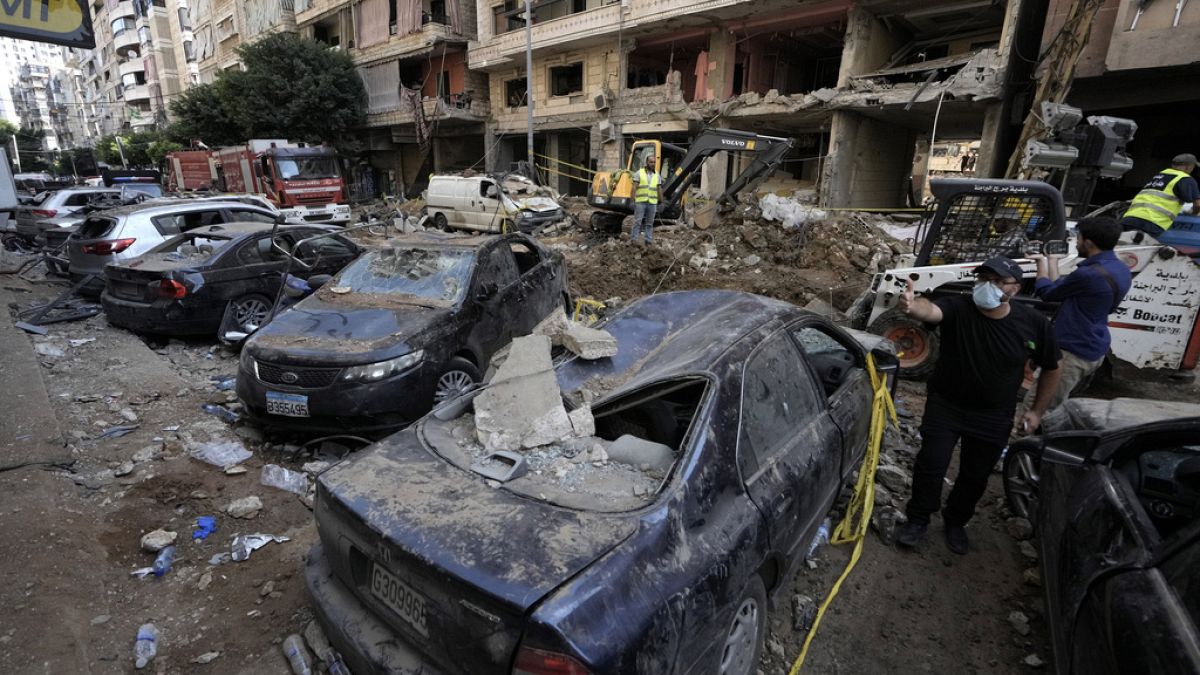Hezbollah recently launched a new type of weapon, Fadi 1 and Fadi 2 missiles, at the Ramat David airbase near Haifa, Israel. The missile strike followed an Israeli airstrike that resulted in the death of 37 people, including a senior leader of the militant group. While it was unclear if the missiles hit their intended target, one man was reported lightly wounded by a missile intercepted in a village in lower Galilee. Local media outlets indicated that rockets fired from Lebanon were intercepted in Haifa and Nazareth. The Israeli military confirmed monitoring the launch of approximately ten rockets from Lebanon, with most of them being intercepted.
Hezbollah claimed responsibility for the missile launch, stating it was in response to the continuous Israeli attacks targeting various regions in Lebanon, resulting in civilian casualties. The escalating conflict between Israel and Hezbollah intensified as rescue efforts were ongoing in Beirut following an Israeli strike that destroyed an apartment building. Hezbollah has pledged to retaliate against Israel for a series of explosions that targeted its members’ communication devices, resulting in numerous casualties. The attacks, which claimed the lives of 37 individuals and injured around 3,000 others, were attributed to Israel, although the country did not confirm or deny its involvement.
The recent missile exchange between Hezbollah and Israel has further heightened tensions in the region, with both sides engaging in retaliatory attacks. The use of new weapons by Hezbollah signals an escalation in the conflict, raising concerns about the potential for further violence and civilian casualties. The Israeli military’s interception of rockets from Lebanon demonstrates its readiness to defend against such attacks. The ongoing violence underscores the deep-seated animosity between Israel and Hezbollah, rooted in decades of conflict and territorial disputes.
The international community has expressed concern over the escalating violence between Israel and Hezbollah, calling for restraint and de-escalation to prevent further loss of life. The United Nations has urged both parties to exercise maximum restraint and respect international law to avoid a full-blown conflict. The recent wave of attacks and counterattacks threatens to destabilize the region and undermine efforts for peace and stability. Diplomatic efforts are underway to mediate the conflict and prevent a further escalation that could have far-reaching implications for the Middle East.
The missile strike by Hezbollah represents a significant escalation in the conflict with Israel, raising fears of a wider regional conflict. The use of new weapons by Hezbollah underscores its growing military capabilities and willingness to confront Israeli forces. The Israeli military’s swift response to intercept the rockets highlights its commitment to defending against threats to its security. The situation remains fluid, with both sides on high alert and the potential for further violence looming large.
As the conflict between Israel and Hezbollah continues to escalate, the international community must intensify efforts to facilitate dialogue and negotiations to resolve the underlying issues. Regional stability and peace are under threat due to the ongoing violence, with the risk of a wider conflict drawing in neighboring countries. Both Israel and Hezbollah must exercise restraint and prioritize diplomacy to prevent the situation from spiraling out of control. The recent missile exchange underscores the urgent need for a peaceful resolution to the conflict, as further escalation could have catastrophic consequences for the entire region.











